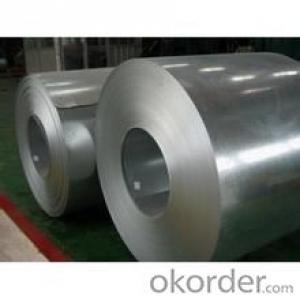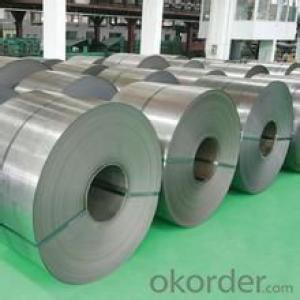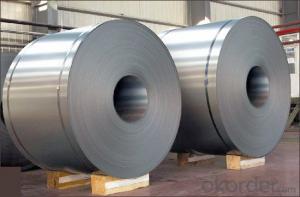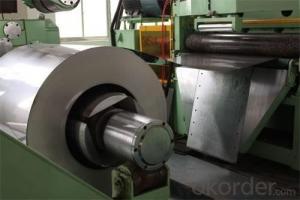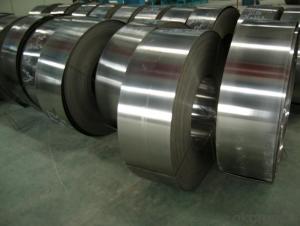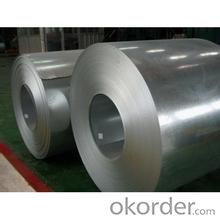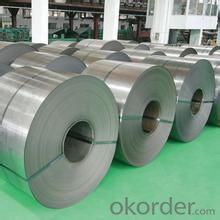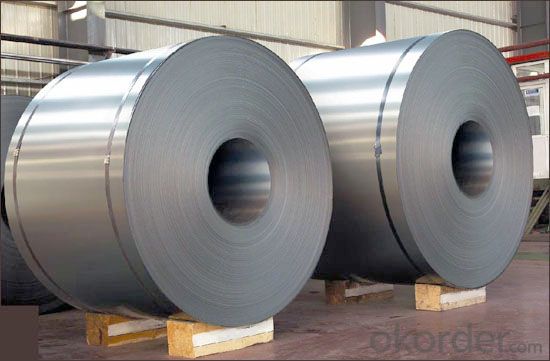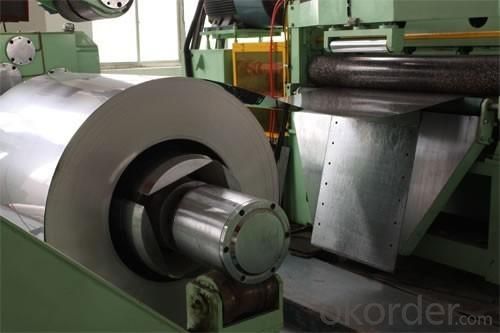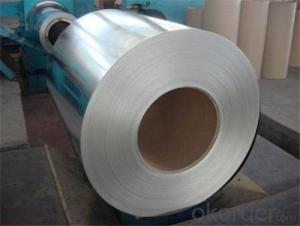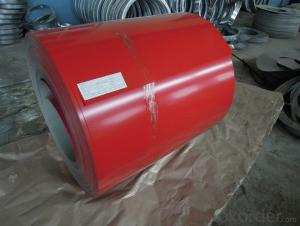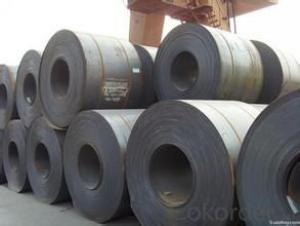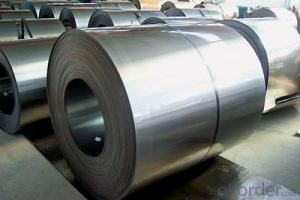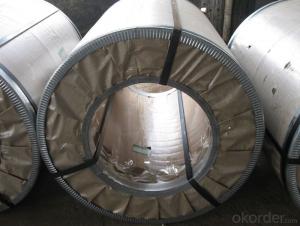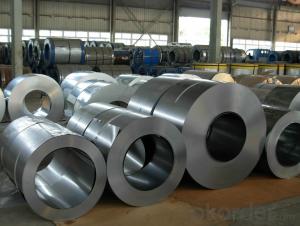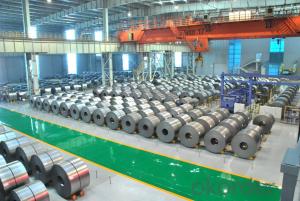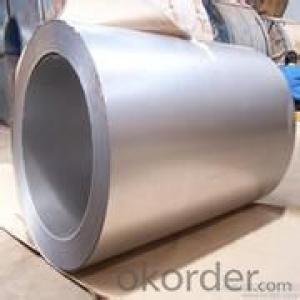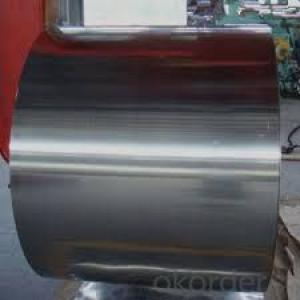Best Cold Rolled Steel Coil -in Good Price Best Quality
- Loading Port:
- China main port
- Payment Terms:
- TT or LC
- Min Order Qty:
- 50 m.t.
- Supply Capability:
- 10000 m.t./month
OKorder Service Pledge
OKorder Financial Service
You Might Also Like
Best Cold Rolled Steel Coil -in Good Price Best Quality
1.Structure of Best Cold Rolled Steel Coil -in Good Price Best Quality:
The raw material of cold rolled steel coil/sheet is high quality hot rolled product, and after pickling continuous rolling, degreasing, annealing,skin pass,slitting and cut to length line etc. Along with it many kinds of new technology and new process of global cold rolling production have been applied. Therefore the quality of the goods could be guaranteed.
2.Main Features of the Cold Rolled Steel:
• Excellent process capability
• Smooth and flat surface
• Workability, durability
• Excellent heat resistance performance
• High strength
• Good formability
3. Cold Rolled Steel Images:
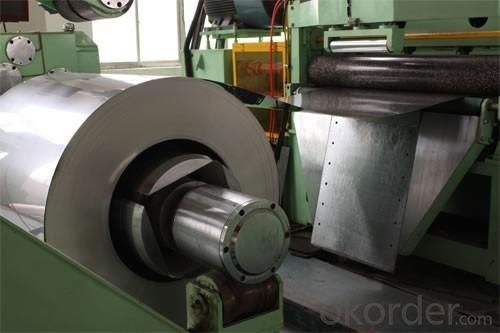
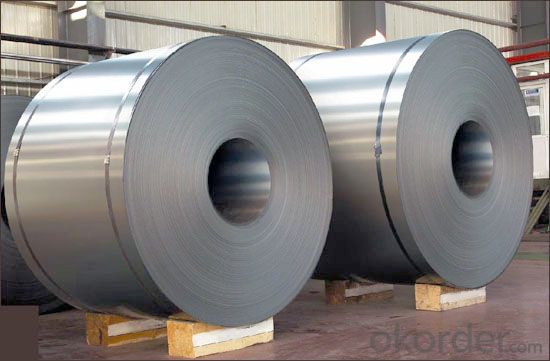
4.Cold Rolled Steel Specification
Standard:AISI,ASTM,DIN,GB,JIS,JIS G3302 ASTM 653M EN10142
Grade: Q195~Q345
Thickness: 0.16mm~2.0mm
Width: 1250mm MAX
Coil weight:3-12 MT
Coil ID:508/610mm
Chemical composition:
C | Si | Mn | Cr | Ni | P | S |
0.150 | 0.476 | 11.231 | 12.50 | 0.900 | 0.039 | 0.010
|
5. FAQ of Cold Rolled Steel
1.How to guarantee the quality of the products?
We have established the international advanced quality management system,every link from raw material to final product we have strict quality test;We resolutely put an end to unqualified products flowing into the market. At the same time, we will provide necessary follow-up service assurance.
2. How long can we receive the product after purchase?
Usually within thirty working days after receiving buyer’s advance payment or LC. We will arrange the factory manufacturing as soon as possible. The cargo readiness usually takes 15-25 days, but the shipment will depend on the vessel situation.
- Q: How are steel coils transported and stored?
- Steel coils are typically transported and stored using specialized equipment and facilities. They are commonly transported by trucks, trains, or ships, secured with steel strapping or wire rope to prevent movement during transit. Once at the storage facility, steel coils are typically stacked in a secure and organized manner, either on the ground or on specially designed racks. The coils may be stored indoors or outdoors, depending on the specific requirements and conditions. To protect the coils from damage and corrosion, appropriate weather protection measures and coatings are applied.
- Q: How do steel coils contribute to fire resistance in buildings?
- Steel coils contribute to fire resistance in buildings by providing structural integrity and stability. The use of steel coils in construction helps in preventing the collapse of buildings during a fire. Steel, being a non-combustible material, does not contribute to the spread of fire, allowing occupants more time to evacuate safely. Moreover, steel coils have high melting points, which means they can withstand intense heat for a longer duration before losing their strength. This property helps in slowing down the fire's progression and gives firefighters more time to control the blaze.
- Q: Molton is formed at 2800 F. Thats a fact. Now jet fuel at its hottest is 1800. Where does the other 1000 degress come in? And it was found at the WTC 7 site. Was this hit by a plane? A simple fire COULD NOT produce molton. This is a fact. Molton is formed during controlled demoliton of a building since all the bombs in the buiding go off and its very very hot. The fact there was MOLTON at the site is shocking to some since it is IMPOSSIBLE for molton to form from jet feul alone. Impossible. It needed another source. Now the claim that I'll get is that it weakened the stell but then we would find weak steel not molton. Why do you seem to throw this off of your shoulder? Do you not want to belive it? I'm no jet fuel guy but I know you cannot make molton by using just jet fuel. This is really proof that 9/11 was an inside job.
- People who believed the buildings collapsed because of the planes are far far off. 1. Burning jet fuel CANNOT melt steel - FACT! 2. The twin towers were built to withstand a hit from a Boeing 707 - FACT 3. NORAD didn't respond - for the first time EVER! - FACT! 4. The pentagon has the most CCTV cameras than any other buildings in the world and they only release the tape which the plane is not visible, they also confiscated the tape from the store opposite which would have shown the plane - if it existed. State sponsored terrorism has been around for along tI'me, im surprised at how many people still believe the official story.
- Q: What are the different methods of embossing steel coils?
- There are numerous techniques for embossing steel coils, each possessing unique characteristics and applications. Some of the most prevalent techniques include: 1. Hot embossing: By heating the steel coil to a high temperature and pressing it between two engraved rollers, this method allows for intricate designs or textures to be imprinted onto the surface. The heat softens the steel, facilitating the desired pattern transfer. 2. Cold embossing: In contrast to hot embossing, cold embossing does not require heating the steel coil. Instead, it employs pressure and specifically designed dies or stamps to produce the desired pattern. Cold embossing is commonly used for simpler designs or when working with heat-sensitive materials. 3. Roller embossing: This technique involves using a series of rollers with engraved patterns to imprint the design onto the steel coil. The coil is passed through the rollers, and the applied pressure transfers the pattern onto the surface. Roller embossing is often utilized for larger-scale production, delivering consistent and uniform results. 4. Laser embossing: A modern method that employs laser technology to create patterns on steel coils. The laser beam selectively melts or vaporizes the metal, generating the desired design. Laser embossing offers high precision and flexibility, making it suitable for intricate and detailed patterns. 5. Press embossing: This technique utilizes a press machine equipped with custom-made dies to imprint the desired pattern onto the steel coil. The coil is positioned between the dies, and the press machine applies pressure, transferring the pattern onto the surface. Press embossing is commonly used for large-scale production, achieving high-speed and high-volume embossing. Ultimately, the choice of embossing method depends on various factors, including design complexity, production volume, material properties, and cost considerations. Each technique possesses advantages and limitations, necessitating careful selection by manufacturers based on their specific requirements.
- Q: How are steel coils protected from chemical damage?
- Steel coils are typically protected from chemical damage through various methods such as applying protective coatings or using barrier films. These protective measures act as a barrier between the steel surface and any potentially corrosive chemicals, preventing direct contact and minimizing the risk of chemical damage.
- Q: How are steel coils used in the production of power generation equipment?
- Steel coils are used in the production of power generation equipment as they are shaped and formed into various components such as turbine casings, generator frames, and steam pipes. These coils provide the necessary strength and durability to withstand the high temperatures, pressure, and mechanical stresses involved in power generation processes. Additionally, steel coils are often coated with protective layers to prevent corrosion, ensuring the longevity and reliability of the equipment.
- Q: How are steel coils used in the manufacturing of packaging materials?
- Steel coils are used in the manufacturing of packaging materials as they provide strength and stability to the packaging structure. They are commonly used as a core material for packaging tubes, enabling them to withstand heavy loads and prevent deformation. Additionally, steel coils are utilized in the production of steel straps, which are widely used for securing packages and pallets, ensuring safe transportation and storage of goods.
- Q: How does the surface finish of steel coils affect their performance?
- The surface finish of steel coils plays a significant role in determining their performance. A smooth and uniform surface finish enhances the coil's ability to resist corrosion, improves its aesthetic appeal, and allows for easier cleaning and maintenance. It also facilitates better adhesion of coatings or finishes, which can enhance the coil's durability and protect it from environmental factors. On the other hand, a rough or uneven surface finish may compromise the coil's performance by promoting corrosion, reducing its ability to withstand wear and tear, and potentially impairing its functionality in certain applications. Therefore, the surface finish of steel coils is a critical factor that directly impacts their overall performance and longevity.
- Q: How are steel coils used in the production of metal signs?
- Steel coils are used in the production of metal signs by being processed through a series of steps such as cutting, shaping, and welding. The coils are uncoiled and cut into the desired size and shape for the sign. Then, they are shaped using various methods like bending or rolling to achieve the desired design. The coils may also undergo welding to join different sections or add additional components to the sign. Overall, steel coils provide the raw material necessary for creating durable and sturdy metal signs.
- Q: I have a Victorinox Pioneer, and I recently filed a little metal off the blade for some jimping. Is the already stainless steel blade still stainless?
- SORRY,linda r your answer is incorrect. stainless is made by adding nickel to the steel during manufacture, the quality of the finished product is determined by the amount of nickel added. low grade stainless is magnetic. good quality stainless is not. whichever it is, it is all the way through, but the lower grades will rust.
Send your message to us
Best Cold Rolled Steel Coil -in Good Price Best Quality
- Loading Port:
- China main port
- Payment Terms:
- TT or LC
- Min Order Qty:
- 50 m.t.
- Supply Capability:
- 10000 m.t./month
OKorder Service Pledge
OKorder Financial Service
Similar products
Hot products
Hot Searches
Related keywords
